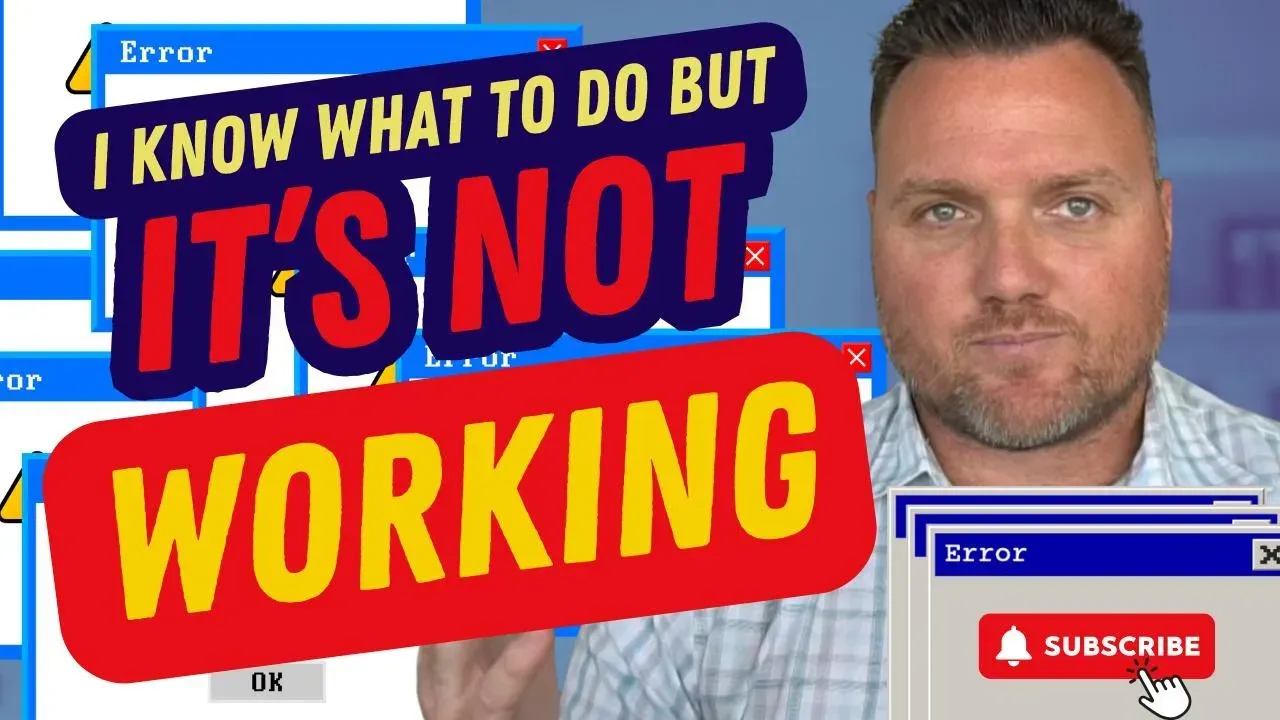I Know What to Do But It’s Not Working | Breaking Free from OCD, Anxiety & Stress
Sep 01, 2025
Why "Knowing What to Do" Isn’t Enough: The Real Path to Recovery from Anxiety and OCD
Welcome to Restored Minds! In today’s blog, we’re diving into an all-too-common struggle: “I know what to do...but it’s not working.” If you’ve ever found yourself feeling stuck, overwhelmed, or lost on your recovery journey from anxiety or OCD, you are not alone. Matt Codde, licensed clinical social worker and founder of Restored Minds, recently addressed this challenge, highlighting key distinctions between knowing and embodying recovery.
Why Recovery Isn’t Just About Managing Symptoms
One of the biggest misconceptions in mental health recovery is treating recovery as merely “managing symptoms.” Many people (often unknowingly) equate having fewer symptoms with being “better”—judging themselves based on good days versus bad days. Matt Codde stresses that emotions like fear and anxiety are basic human experiences, not diseases to be eliminated.
The root issue is the belief that anxiety or OCD is simply a collection of symptoms to control or suppress. This leads people into constant monitoring, judging, and compulsive checking—traps that reinforce the very cycle they’re trying to break.
The Trap of Endless Information
With limitless podcasts, YouTube videos, and books on anxiety and OCD, it’s easy to believe that transformation comes from learning more. But as Matt Codde puts it, information alone doesn’t create transformation. You can know every technique and read every guide, yet still feel stuck. Why? Because information is only the start.
Much like reading a book on swimming won’t make you a swimmer, intellectual understanding is not the same as mastery. True change requires embodying what you learn—making it an integrated part of your daily experience.
Embodiment: The Messy but Essential Middle
Embodiment is the process of integrating knowledge and turning it into lived reality. It’s where the rubber meets the road—the difference between symptom management and real recovery. Think of it as shifting from “managing staying afloat” to confidently swimming without thinking.
Matt Codde emphasizes that this embodiment process is messy, individual, and rarely a straight line. Real recovery is a transformation—a shift to a new baseline level of existence, moving from fear into higher states like neutrality, courage, acceptance, and peace. In those higher states, your perception changes, and the world looks different through a new lens.
Why Chasing More “Tools” Can Hold You Back
If you find yourself constantly searching for the next tool, tip, or technique, recognize that this can become its own form of avoidance. At some point, you have to let go of the illusion that more information equals more progress.
The true journey requires a willingness to walk the uncertain, uncomfortable path of practice and embodiment. This is the transformation that leads to lasting freedom—not just oscillating between “good days” and “bad days.”
Recovery is Transformation—Not Just Management
Recovery means moving beyond symptom management. If you’re stuck in a cycle of “good days” and “bad days,” you’re likely still managing rather than transforming. This leads to suppression, triggering events, and spirals of anxiety that feel endless.
Moving into recovery is about embodying new ways of thinking, feeling, and behaving until they become second nature. It’s about becoming the person who no longer needs to manage, but who naturally lives from a place of trust, acceptance, and peace.


